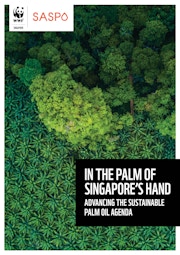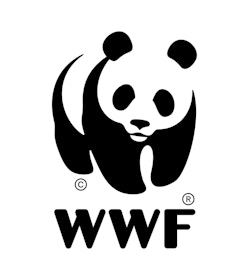
As an economic powerhouse in Asia committed to sustainable development, Singapore occupies a central position in the global palm oil sector and therefore plays a decisive role in the transition to sustainable palm oil.
The global market for palm oil was estimated at US$42.8 billion in the year 2020 with high projected growth rates. Despite the small domestic market size (0.5 per cent of global palm oil consumption), the actions of key players within the country have social and environmental implications that extend far beyond its borders.
Stakeholders in Singapore have extensive linkages and interests across the palm oil supply chain, including direct ownership of palm oil plantations, as buyers and traders of palm oil, and financiers of palm oil operations. Three of the largest palm oil trading companies are headquartered in Singapore and account for more than half of the world’s palm oil trade.
There are positive signs that Singapore is taking action on sustainable palm oil. In recent years, Singapore businesses have made significant progress in increasing their uptake of sustainable palm oil certified by the Roundtable on Sustainable Palm Oil (RSPO), particularly for edible oils used by small and medium enterprises in the food services and food manufacturing industries.
Some local businesses are demonstrating leadership by achieving their commitments to source 100 per cent RSPO certified sustainable palm oil (CSPO) and taking actions beyond their supply chain, including investing in on-the-ground projects in palm oil production landscapes and participating in sustainability platforms such as SASPO.
While Singapore has made progress on sustainable palm oil, more ambition and action is needed across key sectors and actors in the palm oil supply chain to address the deforestation risks present in its value chain. Today, only an estimated 10 per cent of palm oil consumed in Singapore is RSPO-certified.
This report provides an overview of the improvements made by relevant industries in Singapore, but it also reveals linkages to unsustainable palm oil production and its associated risks. Across Asia, the rapid expansion of the palm oil industry has too often occurred at the expense of the environment, local communities and indigenous people.
Sumatra and Borneo have amongst the highest rates of deforestation in Southeast Asia, driven in large part by unsustainable agriculture expansion, including the development of oil palm plantations. Singapore’s deforestation footprint is linked to the import and consumption of commodities mainly produced in countries throughout Southeast Asia, particularly in Malaysia in the state of Sarawak, and is one of the highest compared to other major global economies, underlining the urgency for action.
Key stakeholders in Singapore can be powerful catalysts for positive change in the palm oil industry.
The 2021 Palm Oil Buyers Scorecard (POBS) shows that a few Singapore companies are leading the way, but many are still lagging behind their international peers or did not respond to the survey. Palm oil traders have a pivotal influence and imperative for sustainability leadership. There are also untapped opportunities for engagement with local palm oil buyers from sectors such as cosmetics, surfactants, pharmaceuticals and biofuels that have not been fully involved in the conversation. Whilst financial institutions have started to incorporate palm-oil related risks, banks and asset managers in Singapore are still behind their international peers with commitments and stringent policies.
This report underscores how key palm oil stakeholders operating in Singapore — including buyers, traders, financial institutions and the government — have a critical role and responsibility. It provides actionable recommendations for each stakeholder on how to support and accelerate the transition to a more sustainable and responsible palm oil industry. Such actions would foster Singapore’s position as a sustainability leader and contribute to the Singapore Green Plan 2030, a whole-of-nation movement which underlines the government’s commitment to climate action and sustainable development.
Publish your content with EB Publishing
It's about who you reach. Get your news, events, jobs and thought leadership seen by those who matter to you.










